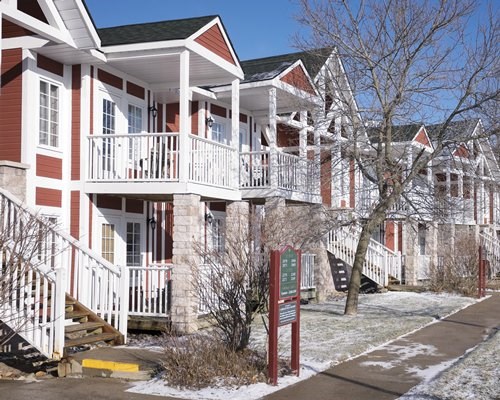Liz Avison wants out of her Horseshoe timeshare.
At age 78, she fears her agreement binds her in perpetuity, a responsibility which may be carried over to her heirs in case of her death. That’s a concern given that an estimated 25 per cent of the 11,000 timeshare owners who have 13,000 “intervals” at Carriage Hills and Carriage Ridge are in default, leaving the remaining owners to carry the financial load.
Carriage Ridge has 78 units within three buildings on eight acres and Carriage Hills has 172 units in eight buildings on 20 acres running independently from Horseshoe Resort - a major ski and golf resort in Oro-Medonte Township.
Of the $1,500 annual fees paid by members, Avison said $300 of it is to cover the fees of owners who stopped paying in.
“I’m definitely out,” she said, citing “years of frustration” over its operation. “I’ve used the resort a little… but I bought it to travel.”
The future of the resort is now being sorted through BDO Canada Limited with the assistance of the courts.
At a hearing earlier this month Justice Barbara Conway of the Superior Court of Justice ordered that a “survey” be developed by July 12, giving timeshare owners the option to indicate whether they want to exit the resort or to continue to be part of it.
BDO will circulate the survey to members, via email; they will have 45 days to respond.
Those who indicate they want to exit will be held to that decision and it will be considered by the court to be binding. Conway indicated those deciding to get out now will have to pay an exit fee ranging from from $1,150 to $2,417, depending on the type of interval they own.
Those who exit won’t have to pay the 2021 basic charges in the fall. Everyone else will be invoiced for those annual fees
If the resort is eventually sold, those who exit could get a cut of any proceeds, Conway indicated.
Those who decide they want to stay for now, will have another opportunity later in the restructuring process to get out.
Members who don’t respond are assumed to want to continue to be involved in their timeshare units.
“BDO can only determine what a restructured resort looks like or whether the resorts are viable once the results are in. Once a restructuring plan is developed, Members can then decide whether they wish to exit or stay. If they exit, the members will have to pay an exit fee at that time,” wrote Conway.
BDO indicated the number of people wanting out is key to determining whether or not the resorts are viable and can be restructured or whether they should be sold.
After that, the remaining members will have a chance to indicate whether they want to accept the proposed restructuring plan or if they want to exit and pay the exit fee to get out of the perpetual contract.
“I see no unfairness because any member that wishes to exit the resorts, whenever that may be, will have to pay an exit fee,” wrote Conway.
Avison is part of a group that has raised close to $60,000 to hire a lawyer to ensure the voice of the owners are being heard through the process. They’ve also created a Facebook page which has about 3,200 members along with a website with a blog providing updated information on the process.
“We’re very concerned about reaching all those other people out there who may not know this is going on,” said Avison.
The vacation units started development in 1997 and are managed by Wyndham Destinations which also owns some of the timeshare units. The resorts were operating at a deficit from 2015 to 2018 with a significant portion of delinquent owners not being able to get out of their contract but unwilling to pay the fees.
The financial situation was complicated by an inability to rent out the units during the pandemic.

